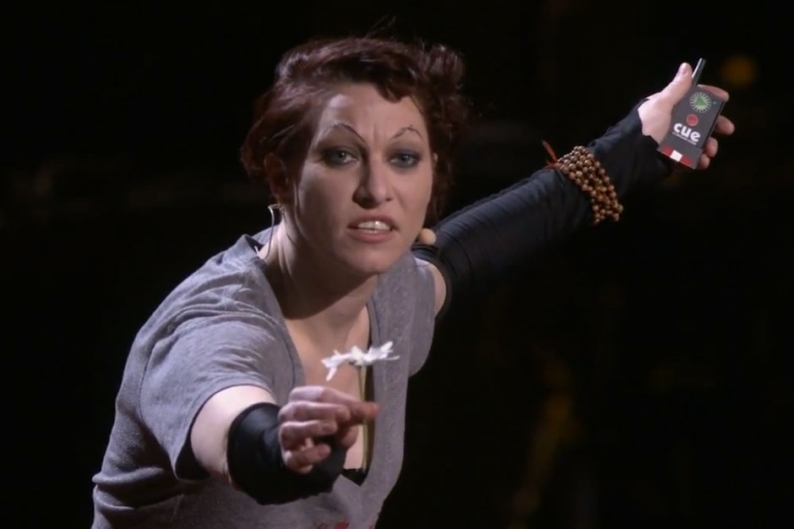Amanda Palmer, oft-criticized proponent of fan-driven funding projects, recently defended her donation-based approach to music-making and performing during a 14-minute talk for the TED2013 conference titled “The Art of Asking.” The Dresden Dolls singer and Grand Theft Orchestra leader began her presentation by recounting her days as a “self-employed living statue,” when she’d stand on a box on the sidewalk, painted completely in white, and silently accept donations from passersby.
“I would get harassed,” Palmer said, revealing that occasionally people driving by would shout at her and tell her to get a “real” job. “It hurt because it made me fear that I was somehow doing something un-job-like and unfair, shameful.”
The cabaret-informed frontwoman discussed how social media and couch-surfing while she toured with the Dresden Dolls led to fans willingly providing her with food, access to instruments, and, in one case, a much-needed neti pot. “Couch-surfing and crowd-surfing are basically the same thing,” she argued in front of the TED audience. “You’re falling into the audience and you’re trusting each other.” Palmer later added that it was that same sort of trust that fueled the record-breaking success of her 2012 Kickstarter campaign, which funded the creation of her most recent album, Theatre Is Evil.
“I fell into those thousands of connections that I’d made and I asked my crowd to catch me,” the file-sharing supporter said. “The media asked, ‘Amanda, the music business is tanking and you encourage piracy, how did you make all these people pay for music?’ And the real answer is I didn’t make them — I asked them. And for the very act of asking people, I connected with them. And when you connect with them, people want to help you.”
Palmer didn’t go into too much detail about the controversy — and back-pedaling — that followed in the wake of her Kickstarter project raising nearly $1.2 million, but when the subject came up, she did single out a Gawker post as particularly hurtful.
“I got a lot of criticism online after my Kickstarter went big for continuing my crazy crowd-sourcing practices, specifically for asking musicians who were fans if they wanted to join us onstage for a few songs in exchange for love and tickets and beer,” she said. “And this hurt in a really familiar way. People saying you’re not allowed to ask anymore for that kind of help reminded me of the people saying get a job. Because they weren’t with us on the sidewalk and they couldn’t see the exchange that was happening between me and my crowd, an exchange that was very fair to us but alien to them.”
She closed the talk with a poignant take on a long-vexing question: “I think people have been obsessed with the wrong question, which is ‘How do we make people pay for music?’ What if we started asking, ‘How do we let people pay for music?'”





